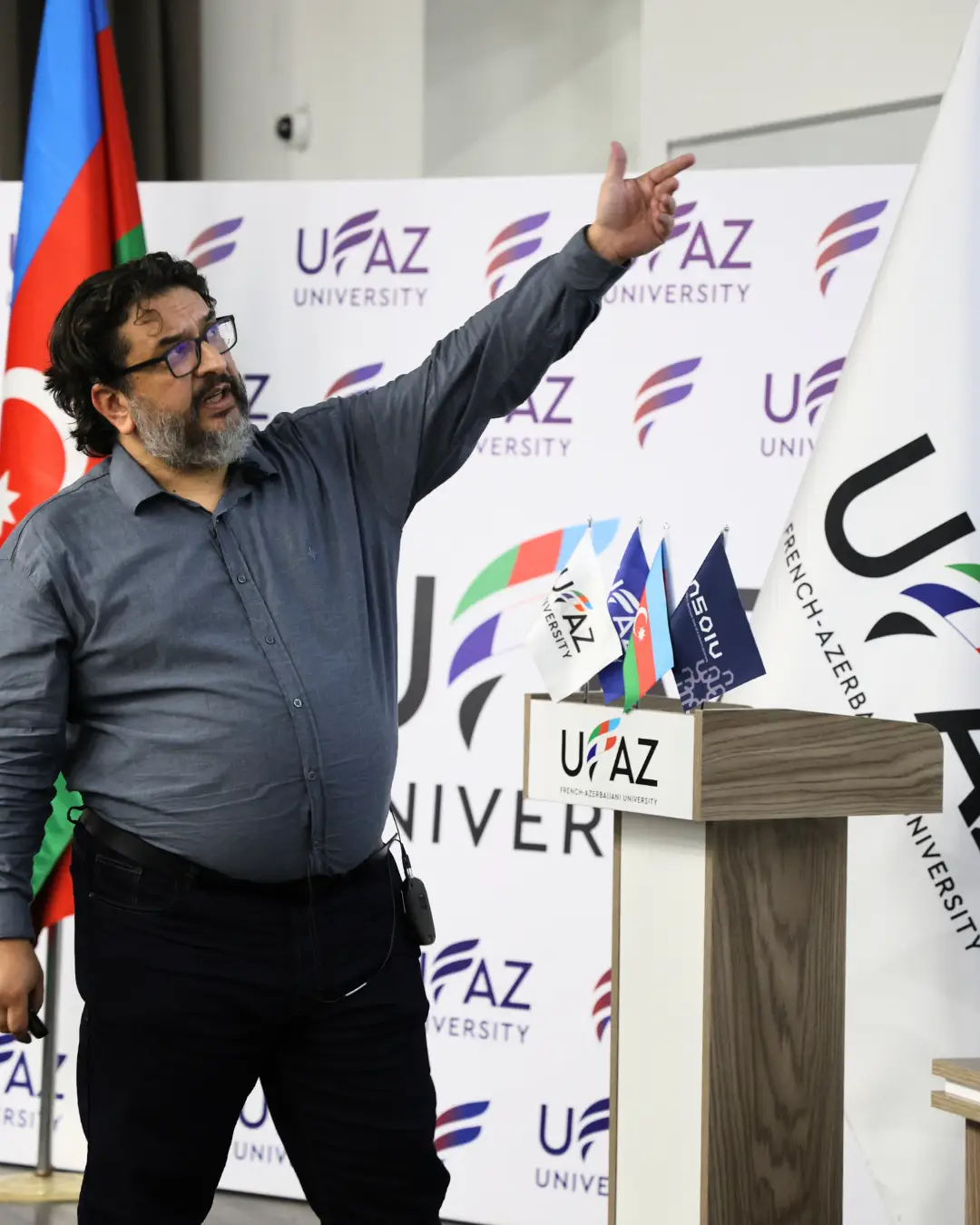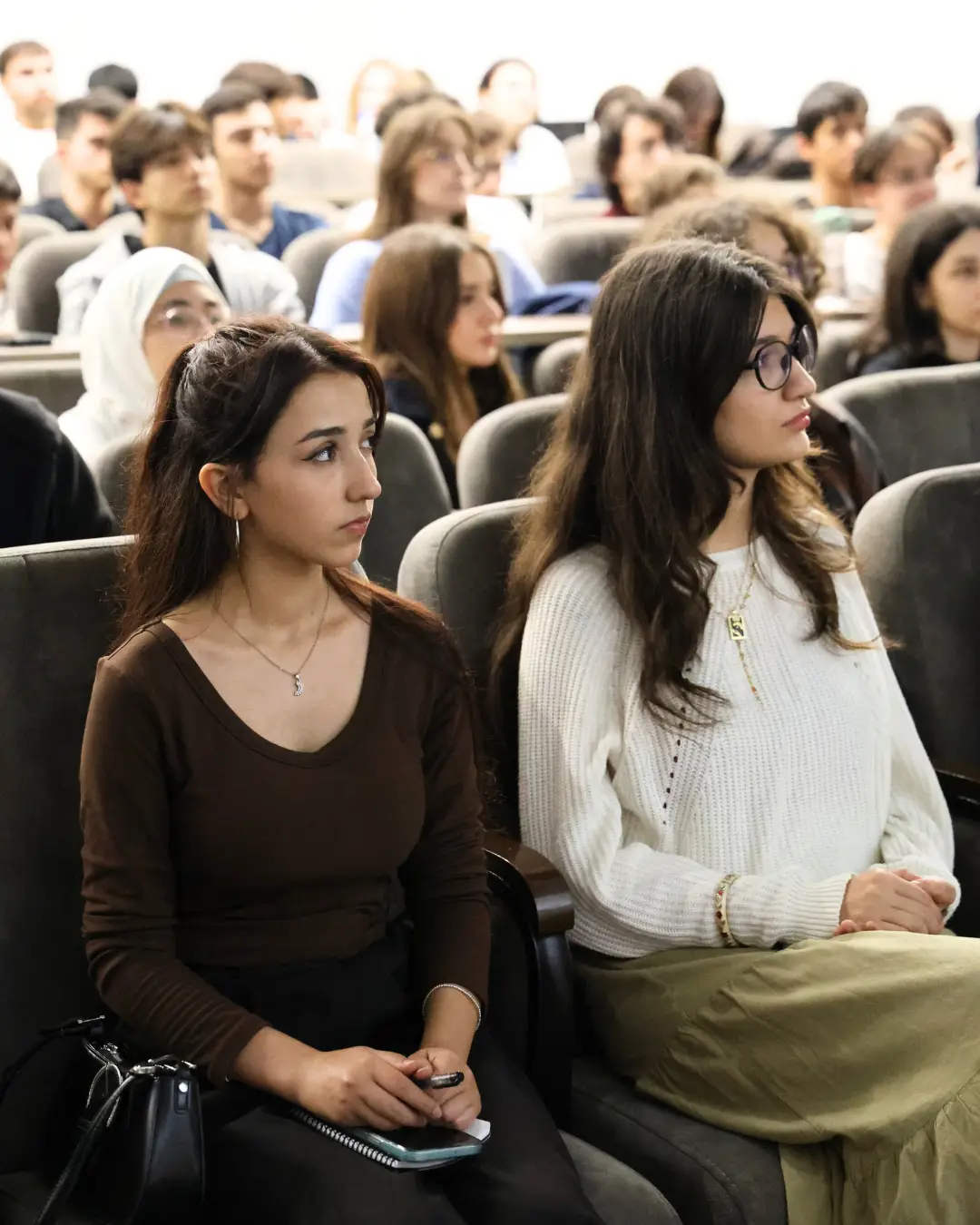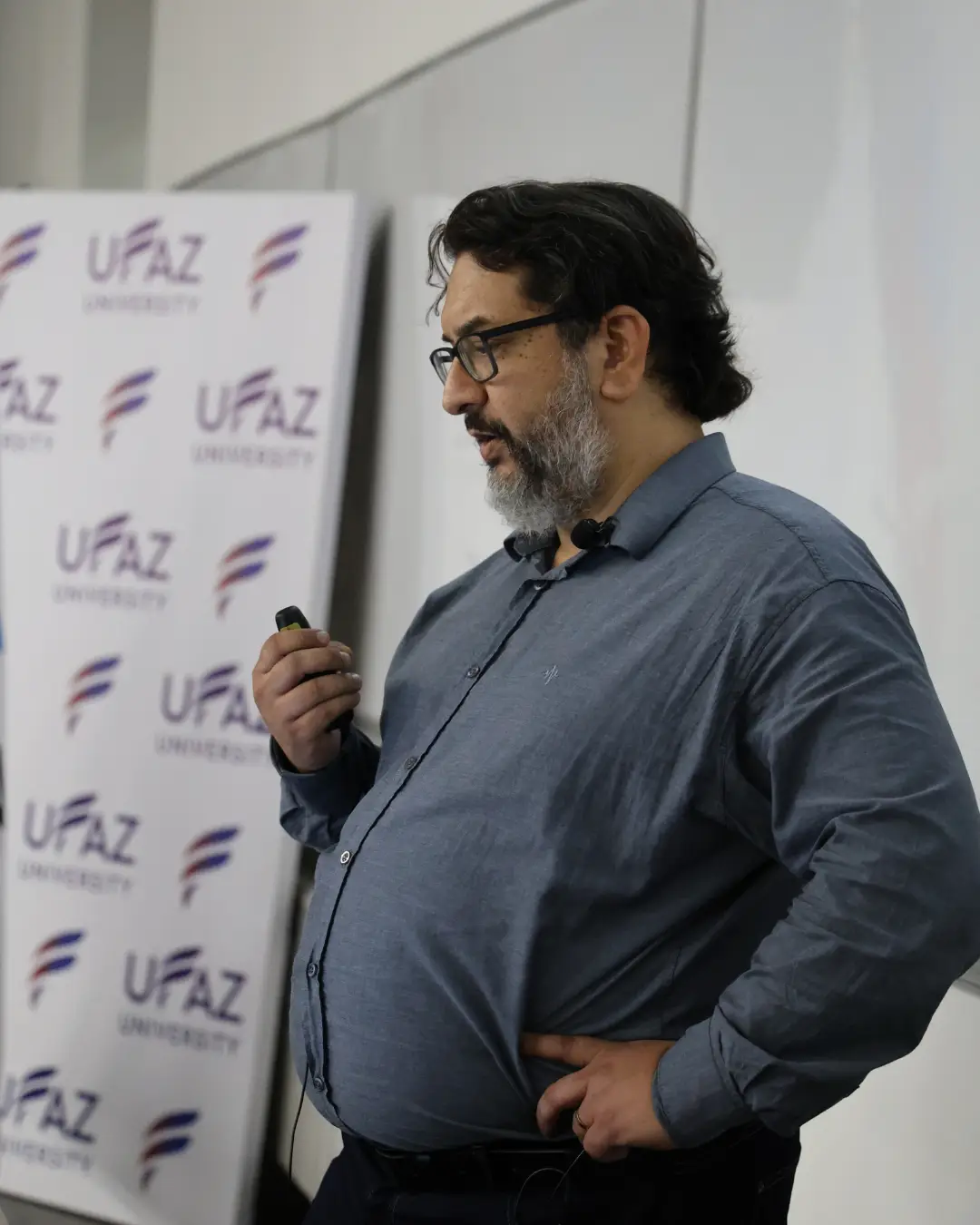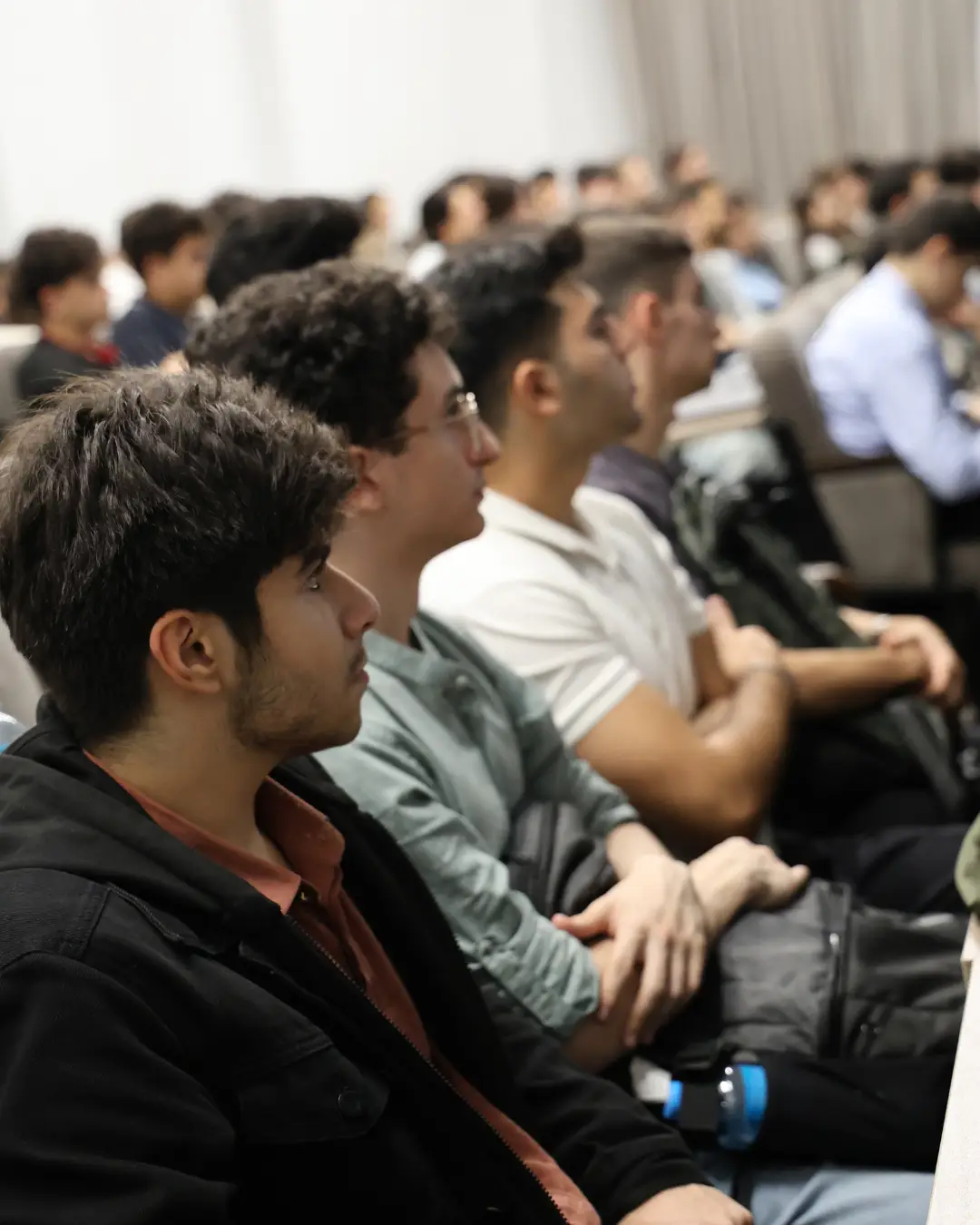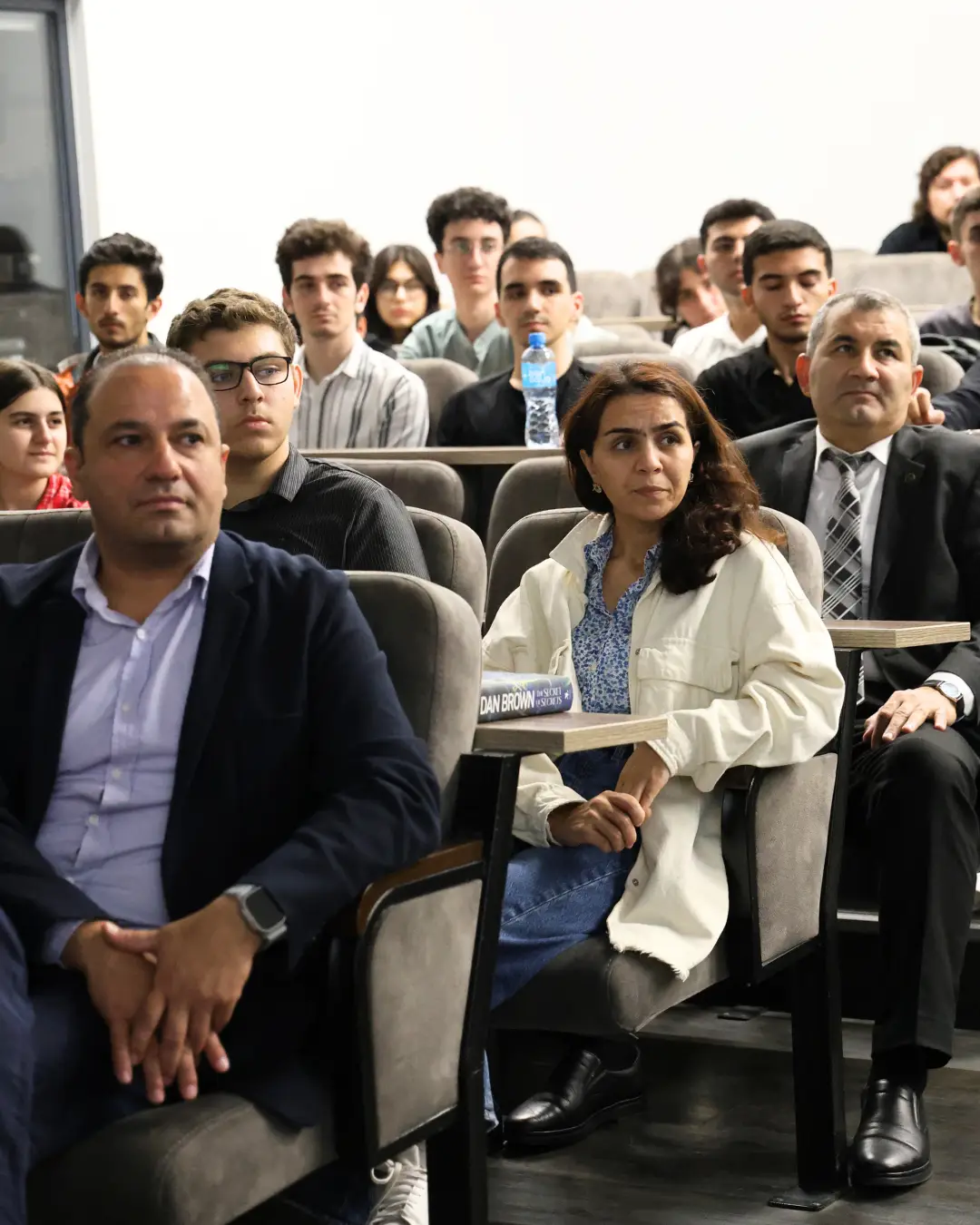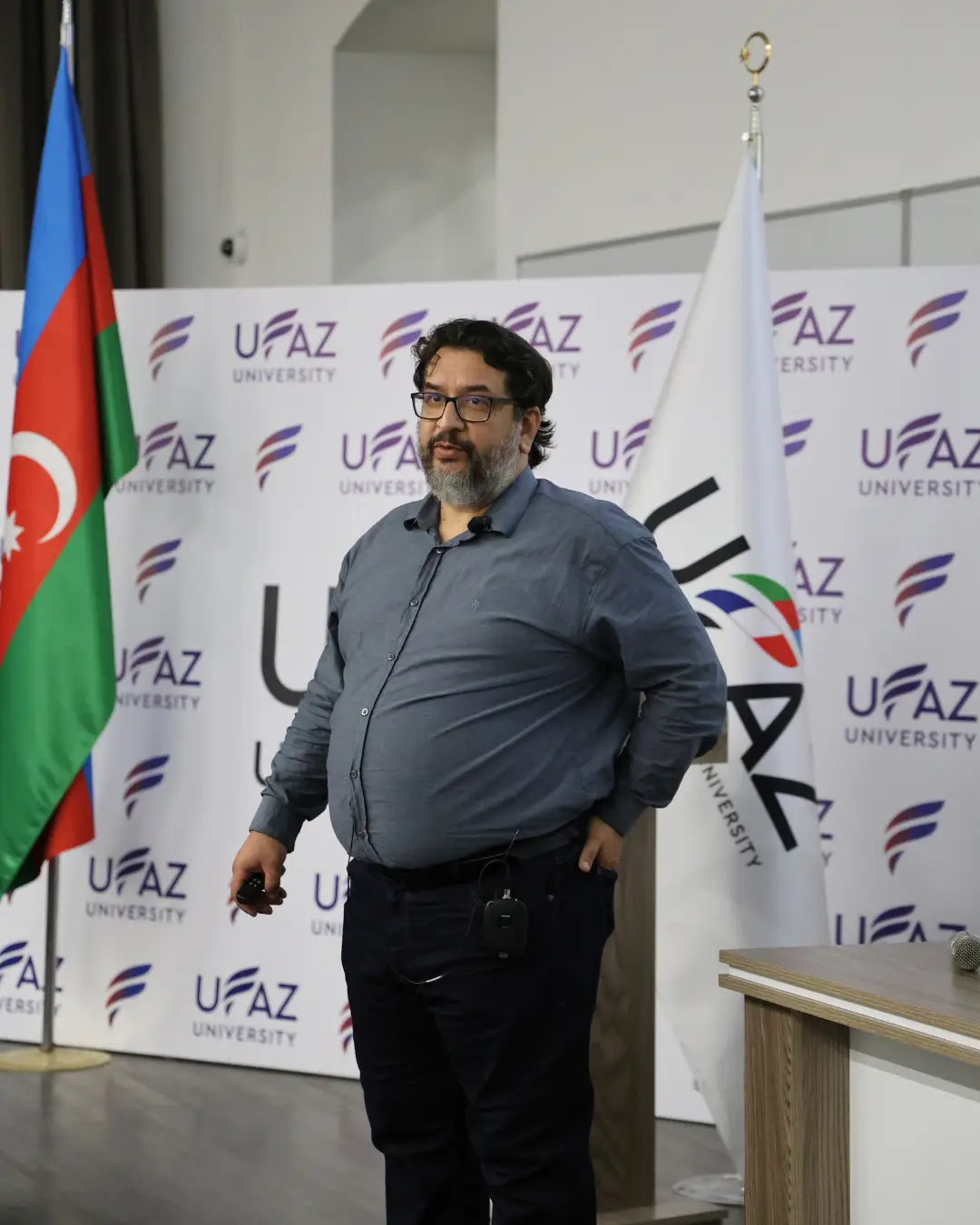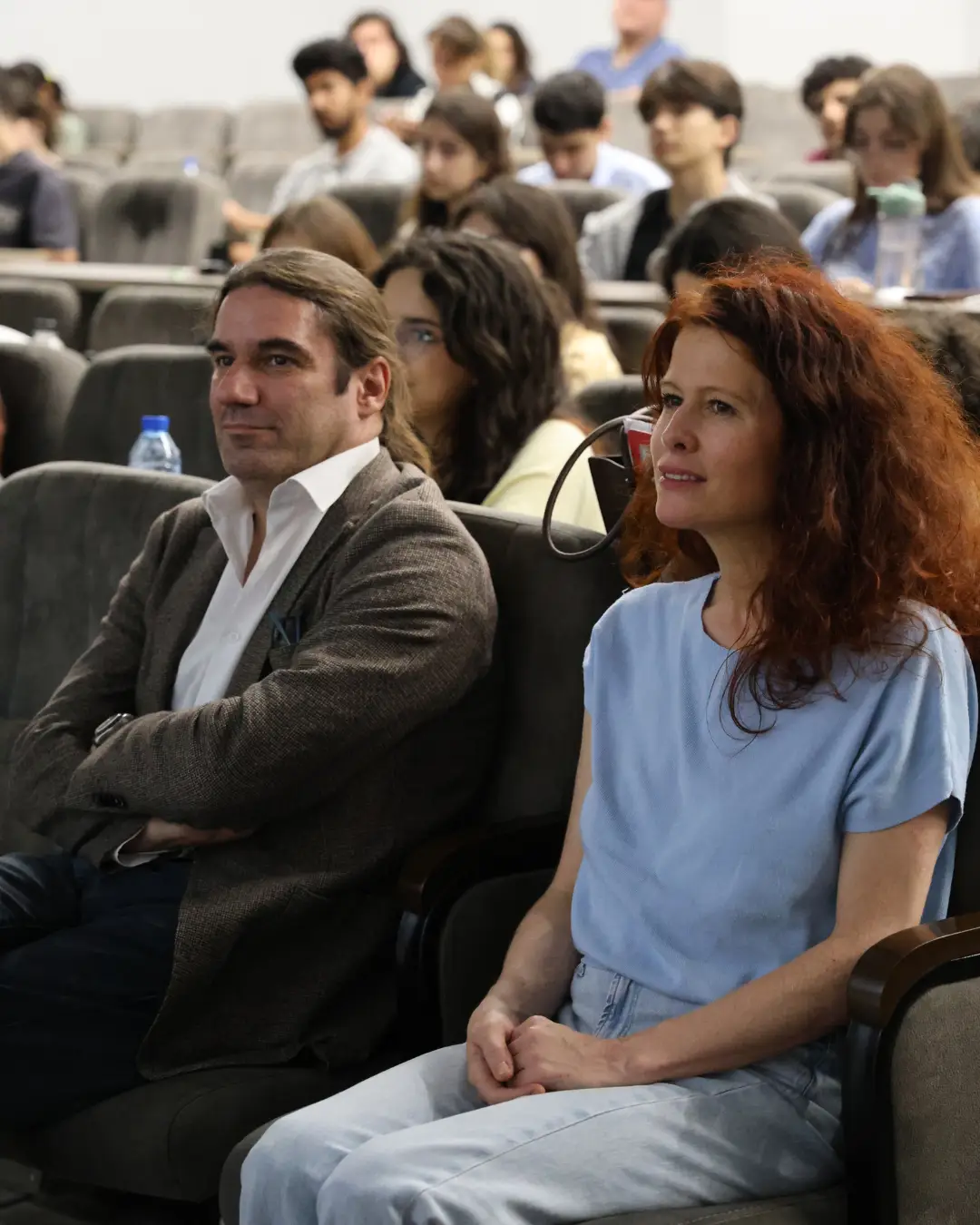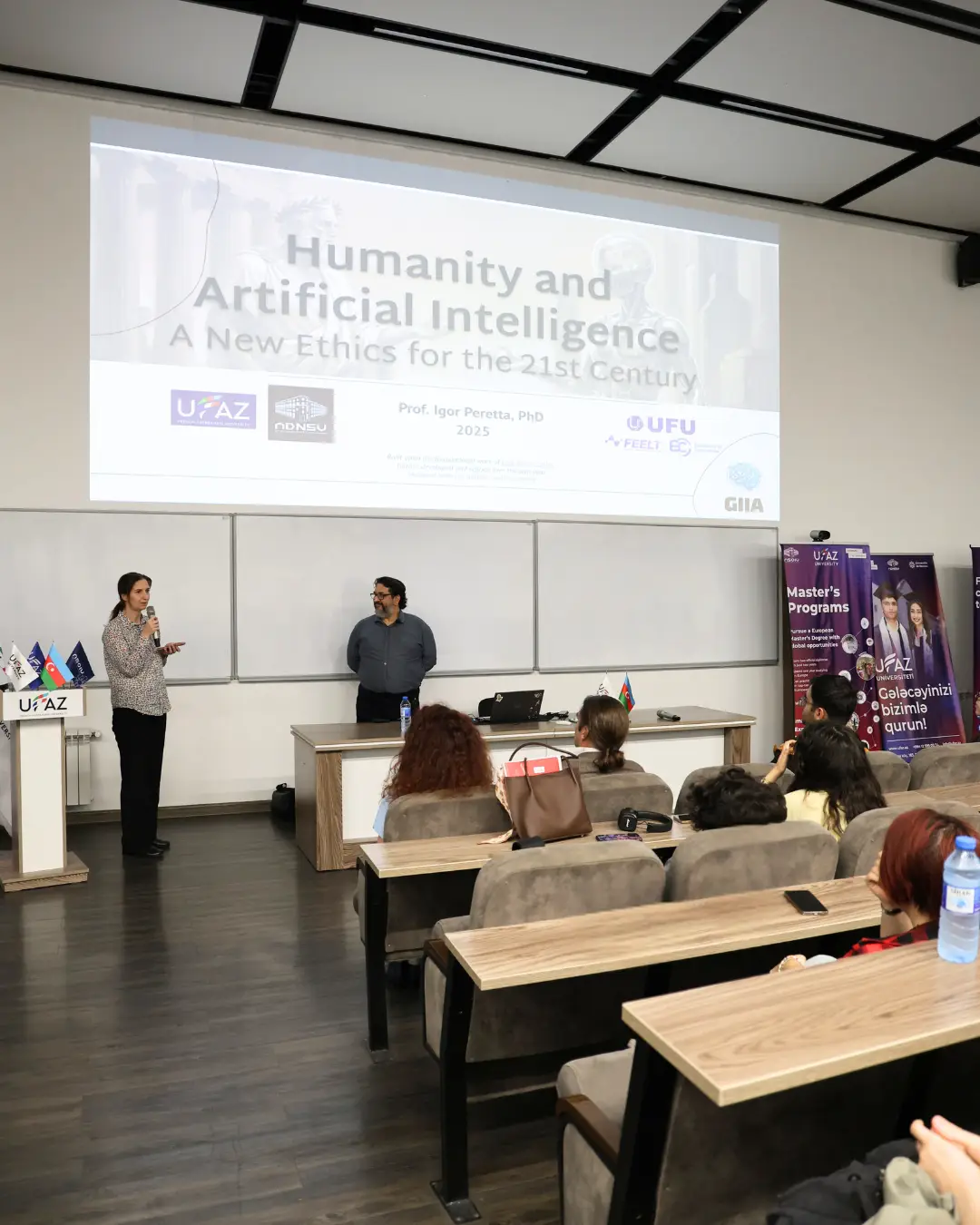4 months ago
UFAZ Hosted a Research Seminar on the Ethical Future of Artificial Intelligence
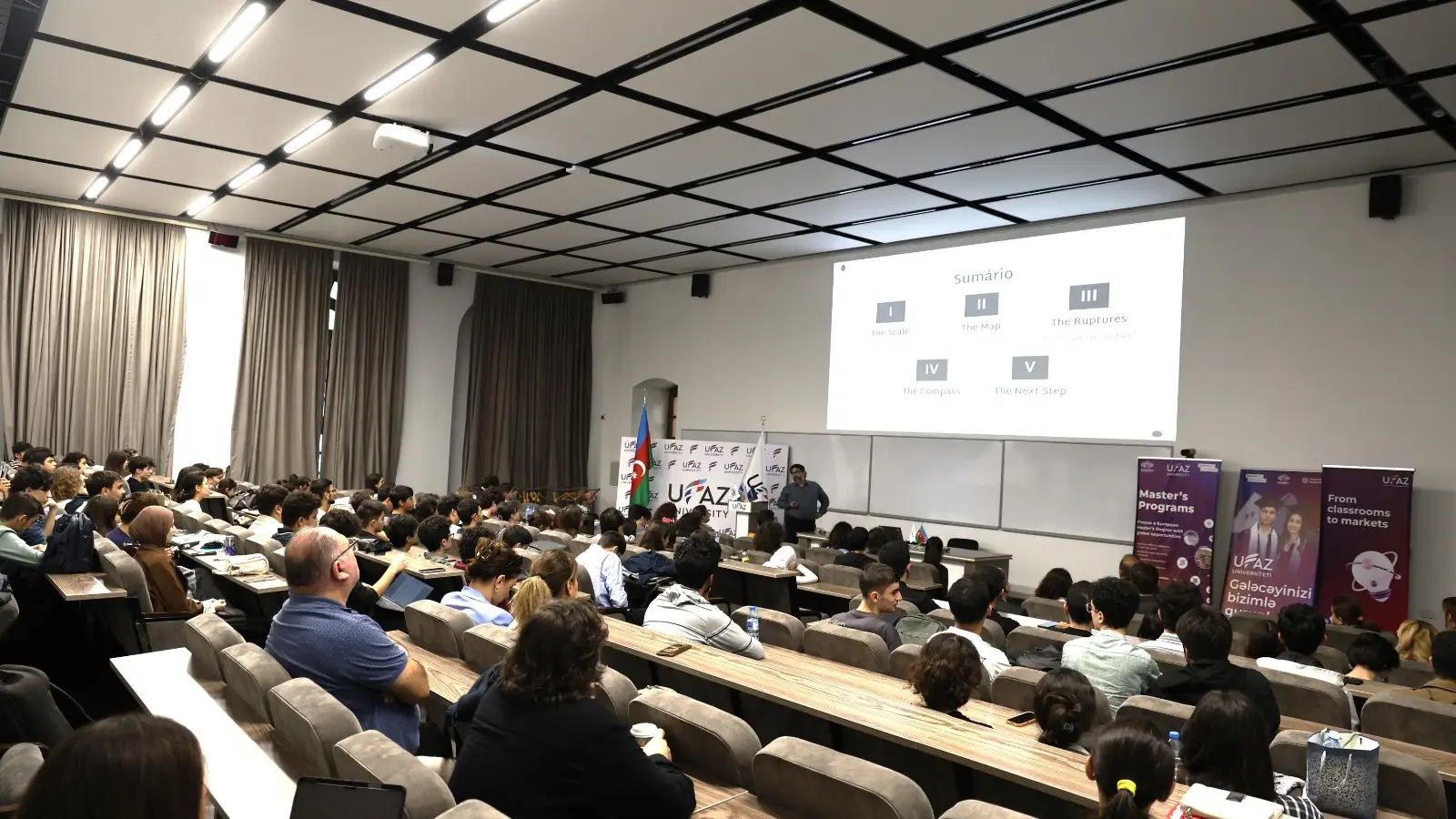
On October 10, The French-Azerbaijani University (UFAZ) hosted a research seminar titled “Humanity and Artificial Intelligence: A New Ethics for the 21st Century”, dedicated to exploring the evolving relationship between humans and intelligent technologies. The event brought together students, researchers, and academics for a thought-provoking discussion on one of the most critical challenges of our era – the ethical implications of artificial intelligence.
Prof. Peretta holds a PhD in Electrical Engineering from Brazil and a PhD in Computer Science from the University of Strasbourg, France. His research covers artificial intelligence, machine learning, evolutionary computation, and quantum technologies. Currently, he conducts international research on explainable AI and the philosophical implications of artificial intelligence.
During his speech, Prof. Peretta emphasized that artificial intelligence should be viewed not only as a tool but also as a new actor in the global ethical discourse. He brought the question “Who controls whom?” back to the spotlight. The seminar discussed the transition from morality systems based on religion and hierarchy to a new paradigm called “borderless egocracy.”
Emphasizing the importance of philosophical awareness among engineers and scientists, Prof. Peretta highlighted that universities play a key role in shaping a responsible and creative approach to AI. He encouraged the audience to move beyond the fear of artificial intelligence toward its ethical and conscious integration into education and society. Rather than viewing AI as a threat to academic integrity, he proposed it as an opportunity to amplify human creativity and foster new forms of human-machine collaboration.
The seminar concluded with an engaging Q&A session, where students and faculty discussed how emerging AI systems could influence decision-making, education, and human identity in the 21st century.
